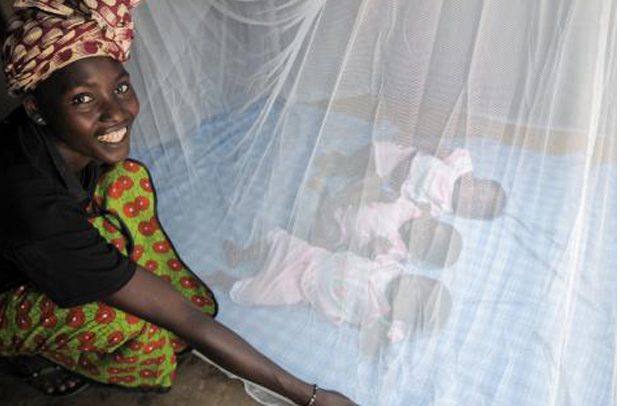Director General of the Ghana Health Service (GHS), Dr Patrick Kuma-Aboagye, has called on the public to take charge of their health and that of their families by observing the precautionary protocols of malaria just as they do for COVID-19.
With Ghana recording 54 malaria deaths in the first quarter, Dr. Aboagye said it was important people observed the malaria prevention protocols by sleeping under an insecticide treated net and test and confirm the incidence of malaria before treatment.
Dr Aboagye said pregnant women were to take all recommended doses of Sulfadoxine/pyrimethamine (SP) to keep themselves and unborn babies safe from malaria and also comply with malaria treatment as prescribed.
This was contained in a statement by the Ghana Health Service (GHS) in commemoration of the 2020 World Malaria Day.
The theme: “Zero Malaria Starts with Me”, is a movement dedicated to driving action and making change.
The 2020, World Malaria Day highlights, recognizes and revitalizes the involvement of high burden countries in Africa, Ghana inclusive, which collectively account for approximately 70 per cent of the global malaria burden.
World Malaria Day (WMD) is commemorated every year on 25th April to recognize global efforts to control malaria. Globally, 3.3 billion people in 106 countries are at risk of malaria.
Since 2008, this day has been commemorated with emphasis on various themes assigned by the Roll Back Malaria Partnership to End Malaria (RBM) & The World Health Organization (WHO).
Cases
Ghana between January and March, 2020, has recorded a total of 1,001,070 malaria cases in the country more than half of the 2,346,677 suspected cases tested, the GHS stated.
Dr Kuma-Aboagye said out of the 1,001,070 malaria cases, 21,201 were children under five years and 28,764 pregnant women.
Furthermore, 42 per cent of the 58,775 admissions due to malaria were among children under five years while 16 of the total number of deaths for the period occurred among children under five years.
“With the involvement and commitment of political decision-makers, the private sector, civil society, the academic community and the public, World Malaria Day 2020 rejuvenates malaria control and elimination efforts across the globe,” it said.
The statement said the “Zero Malaria Starts with Me” was officially launched in Ghana last year by the First Lady, Mrs Rebecca Akuffo Addo.
“In Ghana, we are working to build political will, ensure efficient use of existing resources, increase private sector support and boost media engagement in order to kick start the decade that will end malaria in Africa, ” it said.
Ghana, over the years has made considerable gains in the fight against malaria. Using the targets set in the National Strategic Plan (2014-2020) of reducing morbidity and mortality by 75 per cent by 2020 with 2012 as baseline.
The country by this has made some notable achievements by reducing malaria related deaths at all ages, from 88 per cent of 2,799 in 2012 to 333 by end of 2019.
“In 2012, the country recorded eight malaria deaths every day but this was reduced to one malaria death every day in 2019,” it added.
The statement said between 2012 and 2019, malaria related admissions (all ages), reduced by 8 per cent, Malaria parasite prevalence rate in children under five years reduced from 21 out of 100 children being positive in 2016 to 14 children out of 100 being positive in 2019 reduced. This represents a 32 per cent reduction in malaria prevalence between 2016 and 2019.
“Since 2012, the proportion of Out Patients Department (OPD) malaria cases, tested by microscopy has steadily increased to 40 out of 100 suspected cases being tested in 2012, to 94 out of 100 suspected cases being tested in 2019”.
“So almost every suspected case seen at the health facilities are tested to confirm if it is malaria before being treated,” it said.
The statement said millions of Ghanaians have been reached with effective life-saving tools such as long lasting insecticide treated nets, indoor residual spraying and preventive antimalarials.
It said working together with funding and implementing partners, civil society organizations and communities has led to increased access to malaria prevention, diagnosis and treatment.
It said in the wake of the COVID-19 pandemic, it is possible to lose sight of the deadly malaria disease and the gains made over the years both individually and collectively to protect ourselves and risk reversing hard-won progress in the malaria fight.
However, it is equally important to sustain the efforts made by the Ghana Health Service and its partners to advance efforts made to prevent, detect and treat malaria.
By Jamila Akweley Okertchiri

